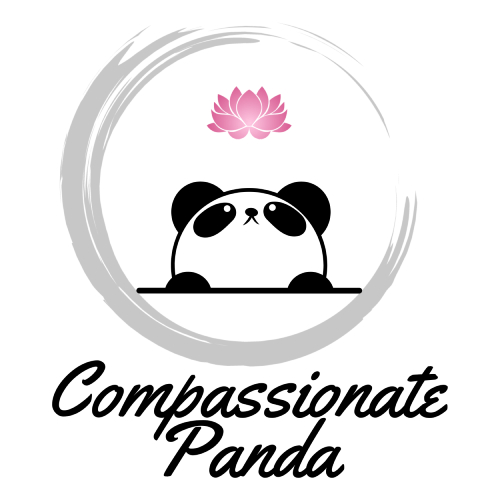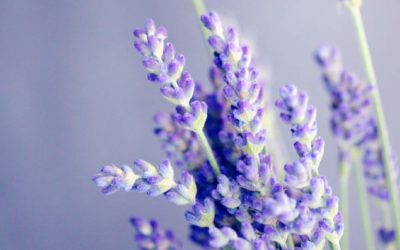I no longer support the use of fish oils
I have little doubt that the fish oil industry is big business, and I am aware that fish oils are claimed to benefit everything from brain health to arthritis to heart disease—so I get why they are popular.
I even used to write about them myself, because I was keen that people at least bought high-quality fish oils if they were going to use them (many fish oils are cheap because they contain filler oils that have no therapeutic value). But though I was trying to ‘do the right thing’ based on what I had been taught about their benefits, and the evidence seemed convincing (at least for the periods demonstrated in trials), I’ve changed my tune. Quite simply, because I no longer see any justification for using fish oils for a variety of reasons.
Our oceans are in trouble
We all need to care about protecting our oceans and the life within them. Because our oceans are in trouble for three reasons that I am aware of—pollution, climate-related changes, and my main point here, which is overfishing. You might think that overfishing is too big a problem to solve and that you cannot do anything—I’d like to disagree and suggest to you that your choices matter. In a nutshell, those that continue to eat fish and seafood and/or take fish oils are part of the overfishing problem. There’s no way to sugar-coat that statement. But equally, those that stop become part of the solution.
Sustainably sourced fish oils make no sense
I’m aware that the term ‘sustainable’ gets bandied about a lot when it comes to fish oils, and this might be making some purchasers feel better about their choices—but I see this claim to be questionable. If our oceans are being overfished, can the term ‘sustainably sourced fish oils’ hold any meaning?
Indeed, supplement companies get asked about sustainability a lot (I know, I used to work for one) and they will happily advise something along the lines of “our fish oils are sustainably sourced from small pelagic fish such as anchovies, mackerel and sardines”—a statement that is saying ‘we have done our bit for the environment’. The justification is that these small ocean-dwelling (not farmed) fish reproduce quickly, so they are in plentiful supply…but who says so, and for how long?
It seems to me that the idea that something is sustainably fished means very little if all fish stocks are under threat. And for those interested in this topic, I recommend you watch the eco-documentary Seaspiracy, which raises some alarming questions about the entire fishing industry. In my opinion, krill oil is no better, in case you’re wondering.
There are plant-based options for omega-3s
So, what’s the solution for those wanting the omega-3 fatty acids they are looking for in their fish or fish oil selections? Well, there are other sources of omega-3s in the plant world. You can look to flaxseed, chia, walnuts, hemp seeds, edamame, and seaweeds to name a few. Even broccoli contains omega-3. (Broccoli is a seriously good vegetable to eat regularly for a host of reasons!)
Most plant sources of omega-3s provide alpha-linolenic acid (ALA), which is the upstream precursor to the long-chain omega-3s that fish oil (and seaweed!) provides—namely docosahexaenoic acid (DHA) and eicosapentaenoic acid (EPA). Interestingly, one of the big arguments fish oil suppliers (and nutrition classes, unfortunately) like to make a point of is that you can only obtain ‘sufficient’ amounts of EPA and DHA by eating fish (or taking fish oils) because the conversion from ALA to EPA/DHA is a challenge. Yet, there have been comparisons made between fish and non-fish eaters where the vegan participants had sufficient levels of EPA/DHA even though they only consumed plant sources of ALA. (1) It seems vegans are converting this pathway quite well after all.
Other plant-based anti-inflammatories are available
But maybe you are someone who feels dependent upon fish oils because they are a ‘natural’ anti-inflammatory that you need for some condition you are supporting. In this case, I question whether fish oils are your best solution anyway.
As someone with a Bachelor Degree in Health Science (Naturopathy) and majors in both herbal medicine and clinical nutrition, I am aware of the potent anti-inflammatory qualities of turmeric, with its curcuminoid constituents. But there is also Devils claw (this herb also has sustainability concerns so needs to be from cultivated sources), Boswellia, white willow, and ginger to name a few. Then there is the case for working with dietary strategies, such as changing to a wholefood plant-based (vegan-friendly) diet based upon ample fresh vegetables and fruits and avoiding refined, fried, processed items—this creates a foundation for the entire body to be less prone to inflammation, along with supporting a healthy gut (which from a naturopathic perspective is the key to good health).
All of these are natural strategies for potentially tackling inflammation, and things you can discuss with your natural healthcare provider should you choose to take a more compassionate ocean-friendly path. There’s also algal oil, a vegan-friendly omega-3 supplement—granted it has less EPA/DHA in it than fish oil, but it’s a potential option for those after a more compassionate choice and one you can also discuss with your health provider.
We all need to take responsibility for our choices
In this article, I have shared why I think it’s time to support our oceans and leave fish oils on the shelf (and fish and shellfish too). Everyone’s choices matter so we can all make a difference to the world around us if we take some personal responsibility.
And as someone who has spent decades working in the natural health industry, I am conscious of how health practitioners must also take responsibility for their prescriptive recommendations. After all, one of our primary tenets is to ‘first do no harm’—I see no reason why this doesn’t also extend to the environment. Indeed, as there are plant-based anti-inflammatory or health supporting alternatives available, there is little to no justification I can see for perpetuating the use of fish oils or their derivatives any longer.
Show the oceans some compassion
Yet, I would encourage you to do your research and come to your own conclusions as to whether it’s time to walk away from consuming fish oils and/or fish and seafood. But I like to think that if enough people make a compassionate choice—it could make all the difference to our struggling oceans and allow them to heal and regenerate once more.
Reference:
1. Welch AA, Shakya-Shrestha S, Lentjes MA, Wareham NJ, Khaw KT. Dietary intake and status of n-3 polyunsaturated fatty acids in a population of fish-eating and non-fish-eating meat-eaters, vegetarians, and vegans and the product-precursor ratio [corrected] of α-linolenic acid to long-chain n-3 polyunsaturated fatty acids: results from the EPIC-Norfolk cohort. Am J Clin Nutr. 2010 Nov;92(5):1040-51. doi: 10.3945/ajcn.2010.29457. Epub 2010 Sep 22. Erratum in: Am J Clin Nutr. 2011 Mar;93(3):676. PMID: 20861171.




